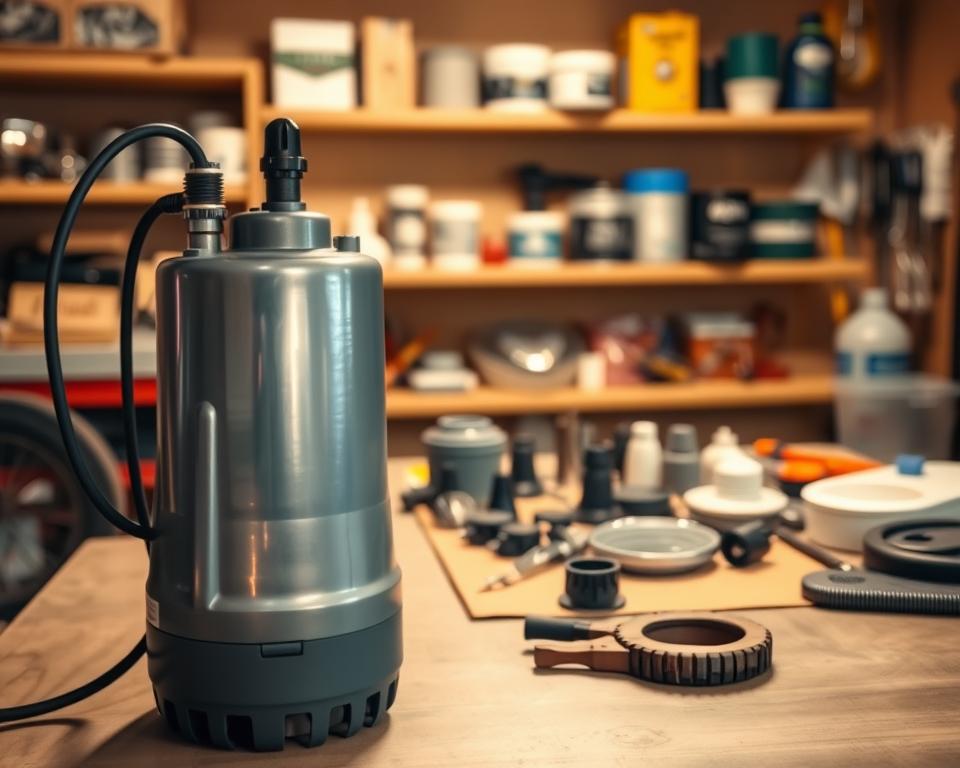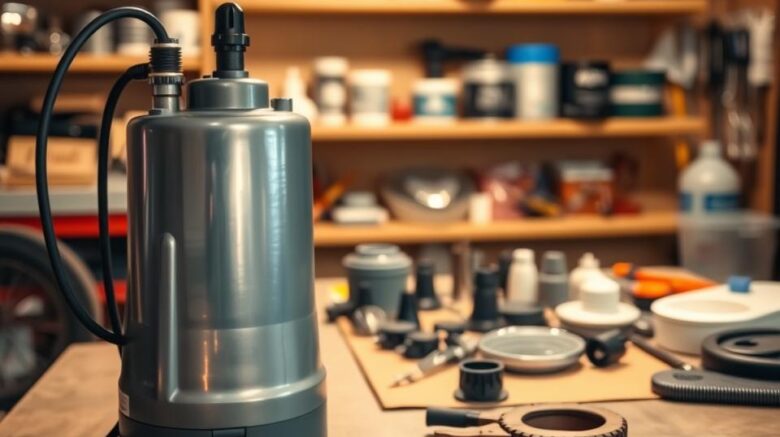Motorhome Tank Emptying: A Manual to Effortless Dumping
Ever wondered about your RV’s waste management amid natural landscapes? Proper tank emptying is vital, often more than you think. Ensuring your rig’s sanitation system functions properly is essential for smooth travel. In this overview, we cover RV sewage setups, the need for septic pumping, and top tips for stress-free excursions. With All in Sanitation’s expertise in RV septic tank pumping, your trips can be as splendid as your destinations.
Fundamental Insights
- Knowing your RV’s waste system matters greatly for effective septic service.
- Routine tank emptying avoids unexpected issues on the road.
- Implementing good routines boosts your RV’s sanitation durability.
- Rely on All in Sanitation for dependable RV waste solutions.
- Knowing when to pump helps ensure a hassle-free camping experience.
- Eco-friendly dumping practices reflect good RV stewardship.
Comprehending RV Sewage Infrastructure
RV waste systems are essential for efficient waste management on the road. They include black and gray water tanks. Black water tanks handle sewage from the bathroom. Gray water tanks manage dish and shower runoff. Understanding how each tank works enhances your disposal process.
It’s critical to maintain these systems properly. Failing to pump the camper tanks regularly may result in blockages. This could spoil your camping trips. Ensure regular checks to keep both tank types functioning well.
Relying on a reputable black water provider ensures correct dumping. Also, treatments tailored for RV systems can prolong tank life and avert bad smells. Maintaining your sanitation setup enriches your camping freedom.
The Importance of RV Tank Emptying
Regular RV septic pumping is vital for the hygiene and functionality of your motorhome. Ignoring tank emptying can cause odors, clogging, and costly repairs. Waste buildup is a health hazard due to bacteria and contamination. Thus, ongoing upkeep is indispensable.
Using a professional service like All in Sanitation ensures eco-friendly waste disposal. Their expertise guarantees safe, efficient handling of your waste. Staying on top of septic servicing keeps your trips worry-free. This practice preserves your adventures by sidestepping septic pitfalls.
Determining RV Pumping Frequency
How often you empty tanks influences your RV’s sanitation. It ensures your journey remains uninterrupted. Your pumping schedule depends on occupancy, tank capacity, and usage patterns.
If you camp sporadically, consider emptying black water tanks every few days. Full-time campers often require more frequent dumping. Monitoring tank levels closely can improve your maintenance routine significantly.
Chemical treatments are useful for determining when to pump. Following these guidelines protects your sanitation apparatus. Avoiding overflows preserves your RV’s plumbing and cleanliness.

RV Waste Emptying Techniques
Several effective methods exist for RV septic pumping, catering to different preferences. A macerator pump grinds waste into slurry creating a slurry for easier disposal. This facilitates easier disposal at dumping stations or designated areas. Many choose it for its speed and simplicity.
Residential dumping routes your RV waste into your home septic. It’s essential to verify local regulations to avoid non-compliance with waste disposal laws. Properly executed, it’s eco-friendly and compliant.
Gravity dumping uses gravitational force to release waste into a cleanout port, being the most straightforward method. All dumping options have advantages and drawbacks. By understanding these, RV owners can select the most suitable option for their needs, ensuring effective waste management.
RV Septic Pumping Equipment and Tools
Effective RV septic pumping requires appropriate tools. A durable sewer hose links your RV to disposal sites. It must be both durable and flexible for easy maneuvering. Quality hoses turn dumping into a quick task.
Macerator pumps are also essential in the equipment lineup. These devices liquefy solid waste into a fine slurry, facilitating smoother transfers. They’re particularly useful where gravity can’t aid the emptying process.
It’s crucial to maintain your RV septic pumping gear. Rinse equipment after every job to prevent buildup. Storing them neatly ensures they’re always ready for use. Taking care of your equipment guarantees hygiene and efficiency during disposal tasks.
Optimal RV Waste System Care
Maintaining a clean and efficient RV waste system is crucial for a pleasant travel experience. To ensure this, it’s important to adopt best practices for RV sewer cleaning. First empty black water, then use gray water to flush. Gray water flushes residual solids, keeping lines clear.
It’s essential to use bacteria and enzyme treatments for effective wastewater management. They maintain a balanced microbial ecosystem in your tanks. Avoid bleach or strong cleaners that harm your septic’s helpful microbes.
Regular rinsing prevents odor and debris buildup. Use separate hoses for black water to reduce contamination risks. This habit enhances overall sanitation hygiene.
Follow this routine to streamline sewer cleaning:
- Dump black water first, then gray water.
- Incorporate bio-additives often.
- Skip bleach and strong disinfectants.
- Rinse tanks, hoses, and connectors after every use.
- Perform periodic system inspections to spot problems.
Following these steps, RV owners can improve the life span and functionality of their wastewater systems. This leads to more enjoyable road trip experiences.
Maintaining Your Mobile Home Septic
Similar to RVs, mobile homes need regular septic care for lasting performance. Regular upkeep prevents expensive repairs and guarantees a working septic system. A routine pump every 3–5 years suits most setups, based on usage and capacity.
Proper dumping techniques protect your septic infrastructure. Make sure to dispose of all waste and chemicals properly. Biodegradable solutions and level monitoring minimize harm. Harsh chemicals should be avoided as they harm the microbes that break down waste.
Arrange periodic expert check-ups to spot issues before they escalate. These check-ups ensure your peace of mind by identifying issues before they worsen, thus maintaining smooth operation. Following these guidelines keeps your home septic in peak shape.
Trailer Wastewater Disposal Tips
Proper camper dump practices enhance travel comfort. Start by finding designated dump stations on your route. Verify legal compliance to prevent penalties and eco-harm. Using camper-safe solutions boosts tank health and dumping ease.
Flushing with clean water helps clear tanks completely. A thorough rinse eliminates leftover sludge. This residue can cause odors and blockages. Plus, it aligns with green practices.
Advance planning is vital. Scheduling dump stops around your itinerary streamlines the process. Coordination makes emptying more efficient. Some useful tips for waste disposal include:
- Regularly monitor tank levels to decide when pumping is needed.
- Use bio-additives to accelerate breakdown and maintain tank health.
- Always wear gloves and clean hands post-drainage gear handling.
What You Need to Know About Holding Tank Treatments
Your RV’s sanitation system depends on effective tank treatments. These treatments are made with specific bacteria and enzymes. Designed to decompose solids efficiently. Using them regularly stops bad odors and ensures tanks stay clear, boosting overall performance.
Adding bio-treatments fosters a healthy septic ecosystem. Speeding up breakdown reduces tank buildup. Less frequent emptying prolongs service intervals.
When selecting an RV holding tank treatment, consider your motorhome’s requirements. Products vary significantly. Eco-friendly options that work well with home septic systems are best. They ensure efficient waste processing and enhance your RV’s waste management system.
| Type of Treatment | Active Ingredients | Benefits |
|---|---|---|
| Liquid Formulas | Bio-catalysts | User-friendly; powerful decomposition |
| Powdered Solutions | Enzymes | Cost-effective; long shelf life |
| Compressed Tablets | Compressed bacteria | Convenient; pre-measured dosages |
Pumping Pitfalls
Many RV owners make errors during septic pumping that complicate waste management. Skipping regular pumping leads to surprises. Resulting in overflow and malfunctions. Misusing cleaners harms beneficial bacteria. This often results in expensive repairs due to the disruption of system operations.
Another common mistake is not following the correct order when dumping tanks. Black-then-gray order matters most. Reversing the order invites leaks and smells. It’s also vital not to open the septic tank access lids during home dumping. This task should be left to professionals due to the inherent safety risks.
Moreover, neglecting equipment maintenance can cause leaks or clogs. Properly maintaining hoses and other essentials ensures an efficient and sanitary RV sewer cleaning process. Avoiding these pitfalls simplifies your outdoor experience. It also ensures a cleaner and safer environment for everyone involved.
Conclusion
Comprehensive septic manuals are indispensable for RV enthusiasts. It makes road trips smoother. Regular maintenance and understanding your waste system can enhance your travels significantly. Employing correct methods and gear ensures stress-free camping.
Partnering with All in Sanitation brings peace of mind. Their skilled team manages waste with precision and care. Allowing you to focus on memories, not maintenance.
Routine tank emptying is fundamental to conscientious camping. It combines the spirit of exploration with the assurance of a tidy, odor-free environment. This balance ensures a pleasant experience for you and your companions on every journey.
